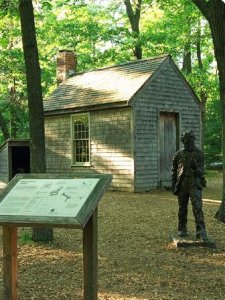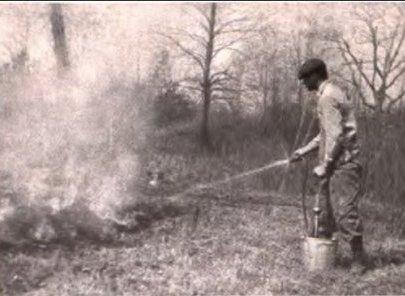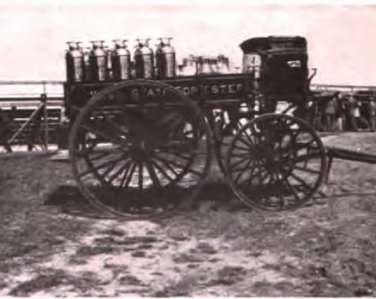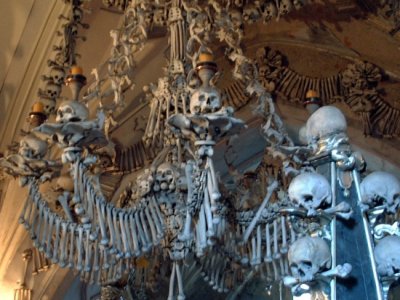Before Walden
Woodsburner, John Pipkin, 2009
Thoreau and Cabin 

In Spring 1844, before moving to Walden Pond, Henry David Thoreau and his friend Edward Sherman Hoar accidentally set fire to the woods, a fire that burned out of control and threatened to burn the town of Concord. From this historic event, Pipkin constructs his first novel featuring a number of strange characters.


Emma is the sole surviving member of her family who died of starvation in the Irish potato famine. Her father has begged enough for Emma to buy passage to America before his death. Emaciated Emma loves the plenty of her new world and is soon voluptuously overweight.
Oddmund (Odd) is the last surviving member of his family who emigrated to America to escape regrettable family history. His father has brought a trunk full of family mementos and when the ship passes Cape Cod, he starts throwing the objects into the ocean. Finally he sets fire to the family tree, sets the ship on fire, it explodes and Odd is blown free by an explosion to become the sole survivor. He is sent to an orphanage where an unknown uncle finds him a few years later. The uncle is arrested, tried, and hung as a pedophile (that is why he was at the orphanage). Odd decides that his family genes cannot be trusted and he moves to the woods to live alone.
One day a wagon carrying Emma gets mired in mud and Odd comes to help get it out. Emma must get down to lighten the load and in the process falls on Odd, burying him in the mud. Odd is smitten for life. When Emma marries a drunken farmer, Odd goes to work for the farmer so he can keep an eye on Emma.
Eliot is a Boston bookseller who wants to be a playwright. He has married the daughter of a rich financier who has provided funds for a Boston bookstore and and has given the couple a three story house on Beacon Hill. Eliot cannot make enough selling books to support his household and their two servants and turns to selling pornography as well as books. He has decided to expand by opening a second bookstore in Concord and has come to town the day of the fire to survey the cobbler shop he has purchased and to meet a new provider of pornography.
Caleb is a Harvard divinity school graduate and inheritor of his father’s modest Unitarian church in Boston. The church is proudest of its imported Glasgow stained glass window depicting eight biblical scenes. Caleb’s father was much influenced by the Transcendentalists. Caleb yearns for a return to the Puritanism of centuries earlier with its fire and brimstone. When Caleb’s fiery sermons fail to move his wealthy and comfortable congregation. he installs a wood burning stove in the church (New England churches are unheated at this time) in an attempt to give his flock a literal taste of the heat and fire that awaits them if they don’t repent. When this fails as well, Caleb takes a hatchet to the church destroying the alter and all the pews and smashing the stained glass window. Now Caleb is preaching in a barn near Concord to a motley group of alcoholics, opium addicts, and other societal outcasts. Caleb follows an addict to an opium den and becomes an addict himself. Two of Caleb’s new congregation are aging Bohemian women from Kutna Hora. They are presumably lesbians. When Caleb talks about building a new church, the Bohemians ask is he is planning a ossuary (like the famous bone church in Kutna Hora). Caleb likes the idea and thinks he might contribute the first bones to the church.
Kuta Hora Ossuary 
The fire brings all these characters together. Thoreau is unconcerned he will be blamed for the fire and contends himself considering fire as a natural part of the wilderness allowing renewal and rebirth (this 130 years before the Forest Service reached the same conclusion and stopped trying to put out every forest fire it saw). Odd, who is terrified of fire, becomes a superhuman fire fighter ultimately stopping the spread and saving Concord. His new found confidence leads him to rescue Emma from her drunk abusive husband and they run away together. Eliot runs to the fire to get inspiration for his latest play which ends with a house burning down. The real fire scares him so much he runs away and gives up playwrighting forever. Caleb puts on his white robes and runs into the fire ready to die. A tree falls on him and after the fire the Bohemians find him still alive pinned under the tree. They nurse him back to health (we don’t know about sanity).
Edward Hoar’s father pays for the damages caused by the fire.
Pipkin writes well and reflectively. On old world immigrants:
The first explorers came in the name of primitive desires: gold, jewels, spices, slaves, trade. Those who came later wanted less, wanted – above all else – to discover the one condition that promised unimpeded possibility: nothing. Men would have been satisfied to find the land barren, as long as it contained absolutely nothing to remind them of the past, nothing to limit the horizon…But, wonder of wonders, these men and women (native Americans) had been here for generations, daring to walk on the soil of the New World like somnambulant trespassers in a centuries-old dream.
On a personal note, fire fighting was an annual activity in our farm community as intentional and accidental (usually straw touches the hot exhaust of a truck) fires needed to be fought to save the wheat crops. Fires do seem to bring out the rationally in some and the craziness in others. We saw fistfights between our mechanic – bus driver and the grain elevator manager over who gets to drive the volunteer fire truck to the blaze; We saw farmers, in a panic to create a firebreak, drive their tractors directly into the blaze where the tractor catches fire and is lost; We saw heroism, wisdom, and foolishness in equal measure. Nothing like it to break up the tedium of work on the farm.